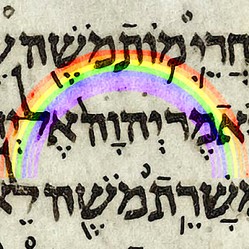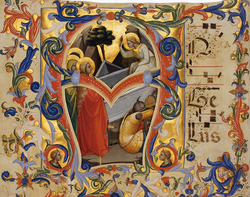I cannot provide a complete review, even after taking the class. However, the book must be read understanding historical events that occurred prior to its writing, symbolism, and a deep knowledge of the Old Testament.
It is worth a study, as long as it is led by an expert in the things mentioned. In my case Jeff Cavins provided via video the expertise, and the priest was scholarly enough to provide answers to questions. The textbook provided lists of meanings of such things as numbers and colors, as understood by the people of the time. Indeed, if a number means complete, that is what is being conveyed, not necessarily the literal number. The colors of the horsemen also have meaning.
While the end of the world is mentioned. It is far from the focus of Revelations. Instead, if properly studied, God reveals, hence the name, Himself to us. It is an incomplete understanding of God’s nature, but in my case much deeper an understanding than before the study. The joyous experience of better understanding God runs through the book. Yes, evil will be punished in the end, but the real focus is on those attaining Heaven.
In the end the group voted on Psalms for the fall. I am back at work, so I will have to pass. If you get a chance to study such a course, I strongly recommend it.














 Multivariable Calculus: Gradient, Divergence, and Curlon 12/19/2025
Multivariable Calculus: Gradient, Divergence, and Curlon 12/19/2025
 UAPs, Formerly UFOs, If They Are Real How Can We Explain Their Arrival to Earth?on 12/18/2025
UAPs, Formerly UFOs, If They Are Real How Can We Explain Their Arrival to Earth?on 12/18/2025
 Polar Coordinate Systemon 12/16/2025
Polar Coordinate Systemon 12/16/2025
 Aurora Can Disrupt Electrical Devices And Even the Grid?on 12/15/2025
Aurora Can Disrupt Electrical Devices And Even the Grid?on 12/15/2025



Comments
Thanks. I would have missed much of the symbolism without the text that accompanied the course.
Apocalypse is the name for a genre of writing that deals in dramatic descriptions of the end times.There is a small apocalypse in Mark's gospel, but Revelations is an apocalypse large and sustained. It is so full of symbolism that it must be read carefully.
Jeff Cavins had a clerical position in a faith other than Catholic, then decided to practice Catholicism. I do not recall the other religion, nor if it was initially Catholic, perhaps he did not mention it on the tapes. Or, I forgot.
God used Old Testament and historical references which should have been familiar to the people of the time, although I certainly would not have drawn the connection without it being pointed out. The expert guidance requires one with theological, historical, and geographical knowledge, as well as what was commonly understood at the time. God, of course, reserve much of His nature for the next world. even after reading we do not get a "complete" understanding of His nature, just a better understanding.
blackspanielgallery, Thank you for insights and products. Wikipedia describes Jeff Cavins as having an evangelical pastoral career before returning to his cradle, Catholic faith. Is that incorrect?
You indicate that "I had heard Revelation was the prophecy of the end of the world, and God had made it such that we would never unravel the meaning" and that "Revelations, also called the apocalypse, is a revealing of God to us. He reveals parts of His nature through the book." Is it that God gives us a historical context so that we understand His nature by seeing his presentation and interpretation of facts that we can or already know, without second-guessing past or predicting future events?
In a different but somewhat related direction, have you seen The Coming Convergence?
Thanks, I thought you might have a deeper insight into both the history and the Book itself. My purpose is to give the significance, and advise on going beyond a reading. It would be difficult to read cognitively without expert guidance, the real message I intend here. Certainly I could not call this a book review, for I intentionally left much out.
The majority of early Christian thinkers followed Justin Martyr in ascribing the book to John the Apostle, but a minority agreed with the historian Eusebius in thinking that it was written by John the Elder. Interestingly, in 22:9 the angel speaks to the writer about "Your brothers the prophets" indicating that the writer was of prophetic rank,only one below an apostle, though this position is not absolutely certain. Some think that John the Elder was a disciple who knew Jesus, but who had not been given apostolic rank. But the important point that many people fail to recognise is that the basis of Scripture's authority is acceptance by the church, which collected and authorised the canon of Scripture. As Revelations was accepted by the church as reflecting the apostolic faith then it is a genuine part of Scripture worthy of study.Questions of authorship are of importance secondary to church approval.
We note that this principle is applicable to Luke's Gospel, for Luke had never met Jesus, but he researched witnesses and what he wrote gained approval by the church, hence it was included in Scripture.
Several works did not earn approval, such as the highly overrated gnostic gospels, and others were classed into the Apostolic Fathers, one of which was the letter of Barnabas, which is heavy on scriptural reference and makes arduous reading.
The author does just call himself John. He does not elaborate.
If read right, with expert guidance, the book does explain much, and can be uplifting.
Wise advice. Revelations needs expert guidance.
There are doubts about the authorship, for some think that the author was John the Elder [presbyter] not John the Evangelist.
It is important not to read any clues about the history of the last two thousand years into it, for it refers symbolically to the history of its own period.
What may be significant is that in chapter 20:10 the Devil, the beast and the false prophet burn eternally, but in 20:15 sinners are hurled into the burning lake with death and Hades.Eternal agony is not mentioned.